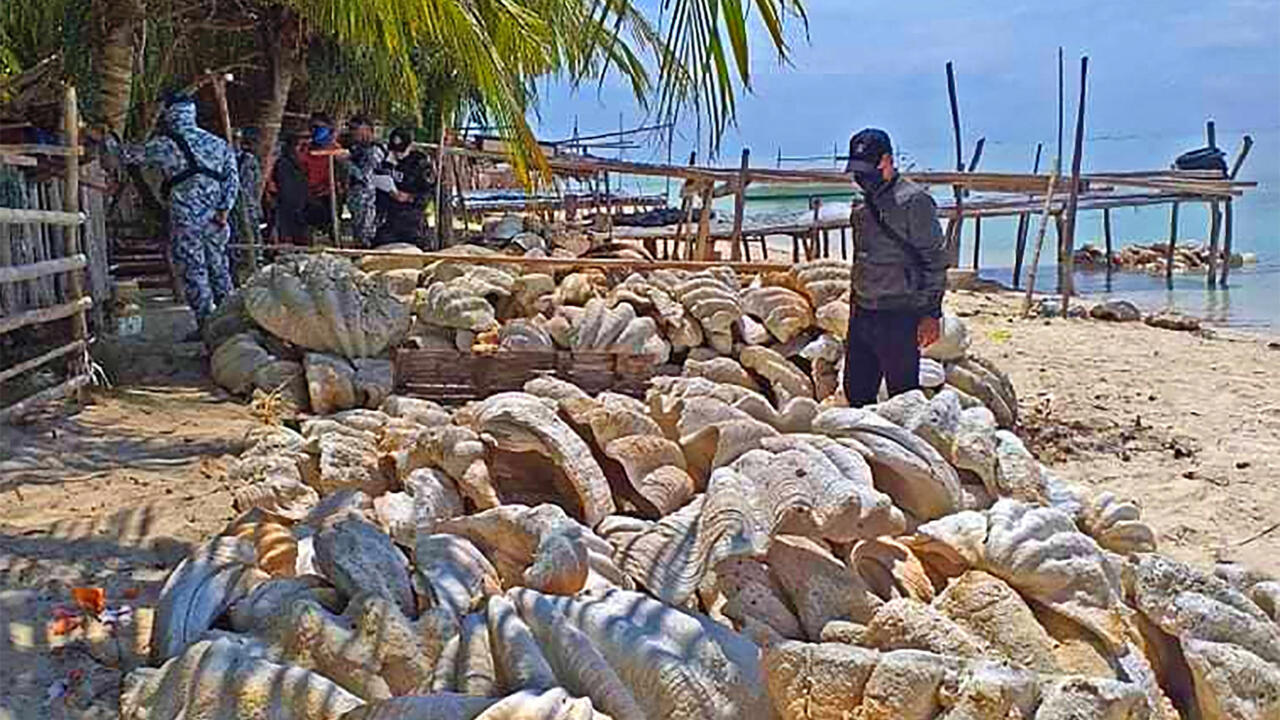Record seizure of giant seashells in the Philippines
The record seizure of 200 tonnes of giant seashells represents a value of nearly 20 million euros on the black market.
AFP - HANDOUT
Text by: RFI Follow
2 min
In the Palawan archipelago in the Philippines, in one of the largest operations against illegal trafficking, the authorities got their hands on 200 tons of giant shellfish, including giant clams.
These shells are in great demand in China, as they replace ivory from Africa.
Their poaching permanently affects the marine ecosystem.
Four suspects have been arrested, they face up to eight years in prison and a fine of up to 50,000 euros.
Publicity
Read more
Dozens of huge white seashells pile up on a sandy beach, in a photo taken by the Philippine Coast Guard.
They are giant clams that can reach three feet in length and weigh up to 250 kilos.
The species is protected because it is threatened with extinction.
The Philippines as well as China prohibit collecting these impressive mollusks to preserve the biodiversity of the seabed.
Nearly 20 million euros on the black market
But illegal trade is in full swing.
The record seizure of 200 tonnes of giant seashells represents a value of nearly 20 million euros on the black market.
Prices are exploding, especially since the poaching of elephants in Africa is more severely sanctioned.
The Chinese, the first clientele in the world, call giant clams "the ivory of the seas".
They adore jewels and sculptures of immaculate white in the shape of boat, fish or flowers which have gradually replaced those in ivory.
At sea, these shells are home to all kinds of algae - a food source for a large number of fish.
Newsletter
Receive all international news directly in your mailbox
I subscribe
Follow all the international news by downloading the RFI application
google-play-badge_FR
Philippines
Wildlife
Flora
Oceans

